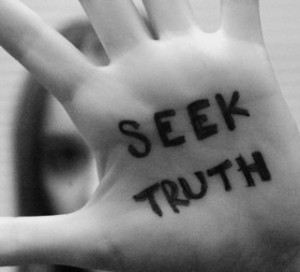 by Rita Schulte
by Rita Schulte
Lance Armstrong has come clean. In a two-part interview with Oprah Winfrey, he shared candidly about his fall from grace and how he wants to rebuild his reputation for the sake of his kids.
The interview stirs controversy. Many see him as a narcissist, and totally disingenuous. Many question his sincerity, wonder if he’s still lying, and are suspicious of his real motives. Only time will reveal how this fall from grace has changed Lance Armstrong—if it has indeed humbled the man who by his own admission sees himself as invincible.
A greater travesty lies deep within the man himself. Oprah played a past clip of Lance vehemently denying any wrongdoing. “Who is that guy?” she asked. He didn’t know.
The deeper issue (perhaps the most tragic in this whole story) is this: millions of people idolized Lance, they trusted him, believed in him, thought they knew him. And all the while he was hiding behind a carefully constructed mask, one that he would promote as genuine at any cost.
I imagine Lance isn’t the only one hiding behind a mask.
Armstrong has asked quite a few people for forgiveness. Many others will hopefully follow. The question that looms: should he be forgiven?
Yes.
Why? Because as Christians we are called to forgive. While most of us obviously haven’t been impacted by Lance Armstrong’s lies, we certainly have someone in our past we’ve had to consider forgiving.
But forgiving doesn’t mean we have to be in a relationship with our offender. Many of us get hung up on what forgiveness means, believing somehow that forgiveness means we’re saying what the person did to us was okay. Others believe that forgiving always means reconciliation.
Let’s consider why we should forgive and how forgiveness, reconciliation and restoration differ.
Forgiveness is for our benefit.
Forgiveness is a means of release for the one holding the debt. It keeps our hearts from the pain and turmoil that toxic anger engenders. God is a forgiver and He has made us forgivers by nature. That means even though our feelings tell us differently, we were designed in the image of God—and his nature is one of Forgiver.
Forgiveness doesn’t mean what someone did was okay.
By forgiving, we often feel we are saying that the offender is somehow off the hook. The truth is that God will deal with the offender. By offering the altruistic gift of forgiveness when it’s not deserved, we walk in our intended nature and character.
Forgiveness requires only one.
Forgiveness is vertical; it’s between you and God. It’s where you decide to forgive another the debt they owe you. God sent His Son to give us a real life model of what forgiveness looks like. We use that model to demonstrate the horizontal forgiving of another.
As for reconciliation …
Reconciliation requires two.
Reconciliation means that the offender comes to the one offended and asks for forgiveness. The offended must decide whether or not to grant forgiveness. If forgiveness is granted, both parties need to decide how to proceed with the relationship.
And that’s where restoration comes in.
Restoration is when the two parties decide what the nature of the relationship will be.
Lance Armstrong can be forgiven. He can even be reconciled. But just because you are reconciled with someone, it doesn’t mean you take that person back into your life. Trust must be restored, and that takes time for a person to prove change has occurred in their lives.
“The truth will set you free,” Oprah said to Lance as they wrapped up the interview. Perhaps this glimpse of God’s character, this divine forgiveness, will help Lance really see the heart of God. Historically, forgiveness has stirred change like that—both in the heart of the offender and the offended.
Do you have something or someone you need to forgive? Let us know below in the comments—a simple yes without details is fine if you don’t want to elaborate—and we will pray for you.
 Rita Schulte is a licensed professional board certified counselor. She received her B.S. in psychology and a master’s degree in counseling from Liberty University in Lynchburg, Virginia. Rita has a private practice with offices in Fairfax and Manassas Virginia where she specializes in the treatment of eating disorders, anxiety and depressive disorders as well as grief and loss issues. She also hosts “Heartline Podcast” where she talks with top leaders in the Christian counseling and literary world about cutting edge issues affecting the hearts and lives of people today.
Rita Schulte is a licensed professional board certified counselor. She received her B.S. in psychology and a master’s degree in counseling from Liberty University in Lynchburg, Virginia. Rita has a private practice with offices in Fairfax and Manassas Virginia where she specializes in the treatment of eating disorders, anxiety and depressive disorders as well as grief and loss issues. She also hosts “Heartline Podcast” where she talks with top leaders in the Christian counseling and literary world about cutting edge issues affecting the hearts and lives of people today.





One thought on “When the Truth (Really) Sets You Free”